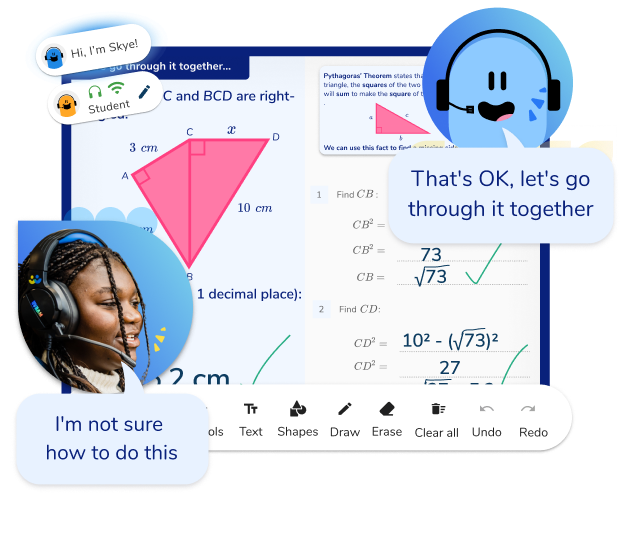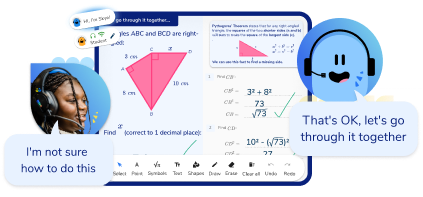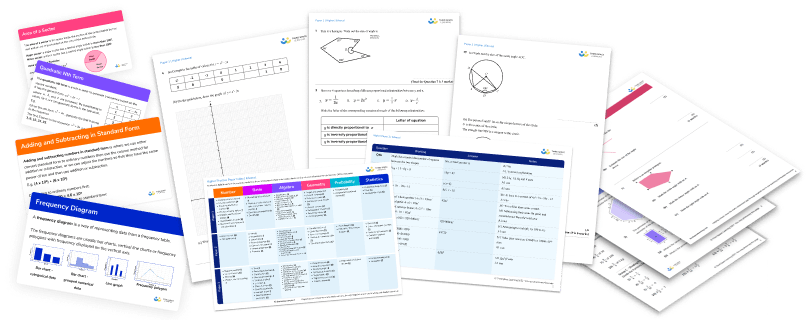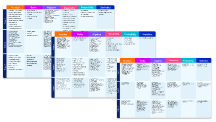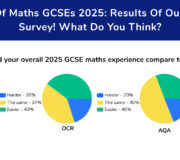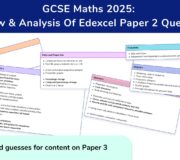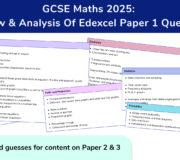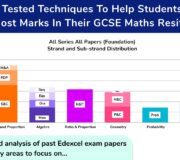GCSE Results 2022: Information & Next Steps For Teachers & School Leaders
Originally published on 26th August 2022.
GCSE results 2022 are out! Our resident secondary expert, Christine Norledge, has guided us through what’s been a busy exam series. Here, she’ll finish the blog series with a thorough analysis of what we’ve learnt from this year’s GCSE exam results.
GCSE MATHS 2025: STAY UP TO DATE
Join our email list to stay up to date with the latest news, revision lists and resources for GCSE maths 2025. We’re analysing each paper during the course of the 2025 GCSEs in order to identify the key topic areas to focus on for your revision.
GCSE dates 2025
GCSE results 2025 (when published)
Analysis of GCSE Maths Paper 1 2025
Analysis of GCSE Maths Paper 2 2025
GCSE Maths Teacher Survey Results 2025
For the first time in three years, GCSE summer exams took place as usual, with some adaptations to reflect learning disruption due to the Covid pandemic.
The GCSE 2022 dates and exam timetable took place throughout May and June of 2022 and GCSE results day was 25th August 2022.
Unless otherwise stated, figures in this article are for 16-year-olds in England only. Statistics on teacher opinions come from a survey of approximately 250 teachers and senior leaders, conducted by Third Space Learning in August 2022.
This blog looks a little deeper at some of the stories from GCSE results day on Thursday 25 August 2022, rather than any data from A-Level results day on Thursday 18 August 2022. We’ll consider:
- How grade boundaries were set;
- What this means for future examination series;
- How students’ and teachers’ experiences of the Edexcel GCSE maths papers are reflected in the results achieved;
- How you can use your results to plan for the coming year;
- How helpful teachers found the 2022 advanced information and whether this changed by exam board;
- What teachers felt was the biggest impact of the pandemic on this year’s exam results.
GCSE Exams 2022 Advance Information For Maths Topic Sheets
Remind yourself of the GCSE maths advance information provided by Edexcel, AQA and OCR with these handy summary sheets!
Download Free Now!Headlines: lower than 2020/21 but higher than 2019
As expected, results were lower than in 2020 and 2021, but higher than in 2019, when summer GCSE exams last took place. For 16-year-olds in England, 75.3% of all GCSEs across all subjects and ages were awarded the ‘pass’ mark, grade 4, or above.
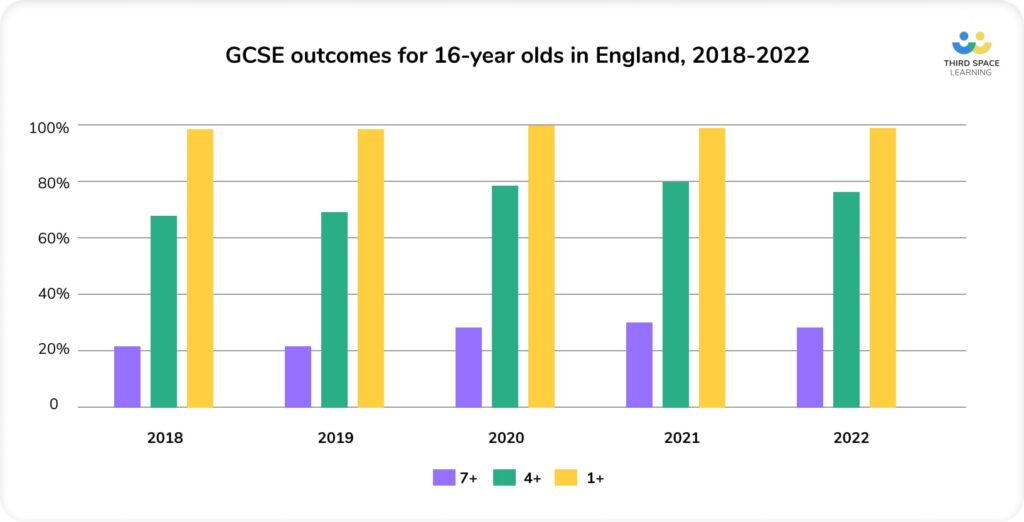
In 2022, the proportion of grade 1s awarded has fallen very slightly by 0.6 percentage points from 2021 and is now back in line with 2018-2019 figures of 98.5%.
The shifts in grade 4s and grade 7s are more pronounced.
- In 2021, 79.1% of students were awarded a grade 4 or higher, dropping by 3.8 percentage points to 75.3% in 2022.
- In 2021, 30% of students were awarded a grade 7 or higher, dropping by 3 percentage points to 27% in 2022.
Both of these figures are still considerably higher than the last time GCSE exams were sat when the figures were 69.9% and 21.4% respectively.
GCSE maths outcomes: headline figures
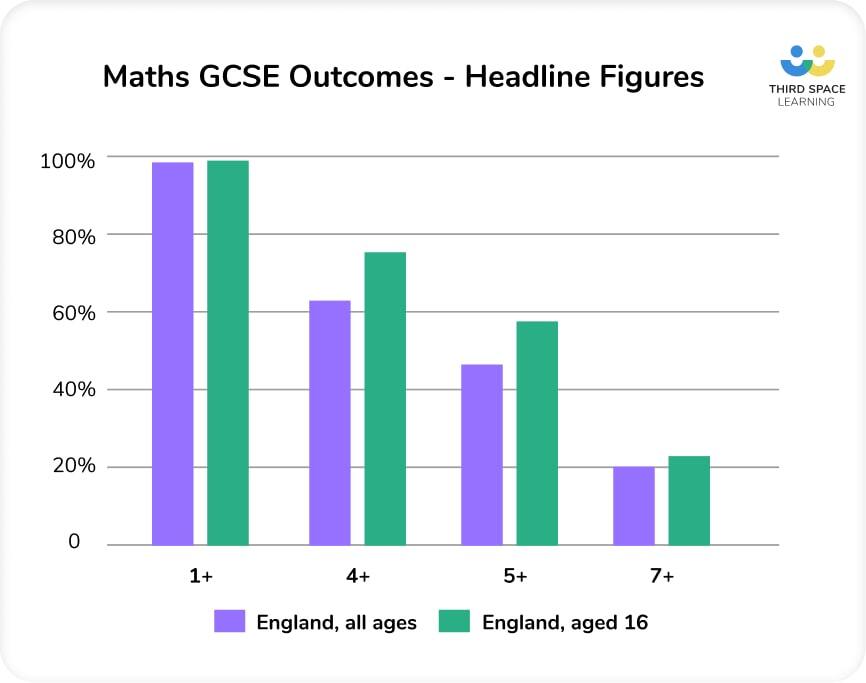

For 16-year-olds in England in 2022:
- The proportion of grade 1s awarded has fallen very slightly by 0.6 percentage points from 2021 and is closer to the 2019 figure of 98.2%.
- The proportion of grade 4s awarded has dropped by 2.8 percentage points to 75.1% but is still considerably above the 2019 figure of 71.5%.
- The proportion of grade 7s awarded has dropped by 1.9 percentage points to 24% but is still much higher than the 2019 figure of 20.4%.
WE ASKED
What percentage of your GCSE students reached their target grade in maths this year?
YOU SAID
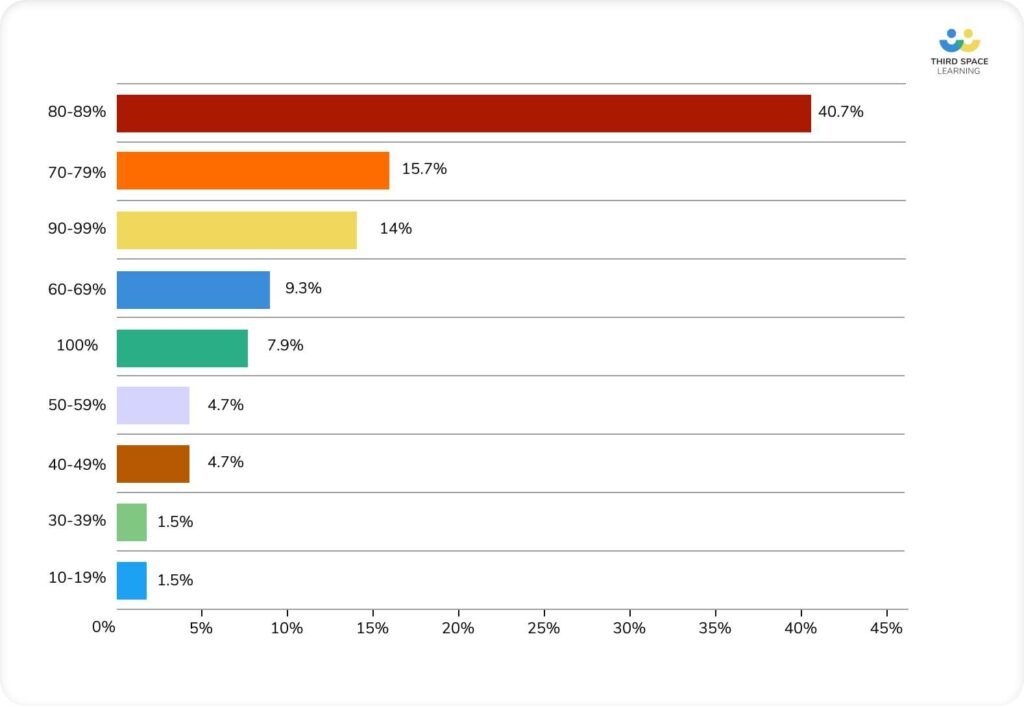
Headline results for other GCSE subjects
As we are maths specialists, we’re focusing primarily on the 2022 GCSE maths exams and results, but let’s look at a few highlights from other subjects.
English language and literature
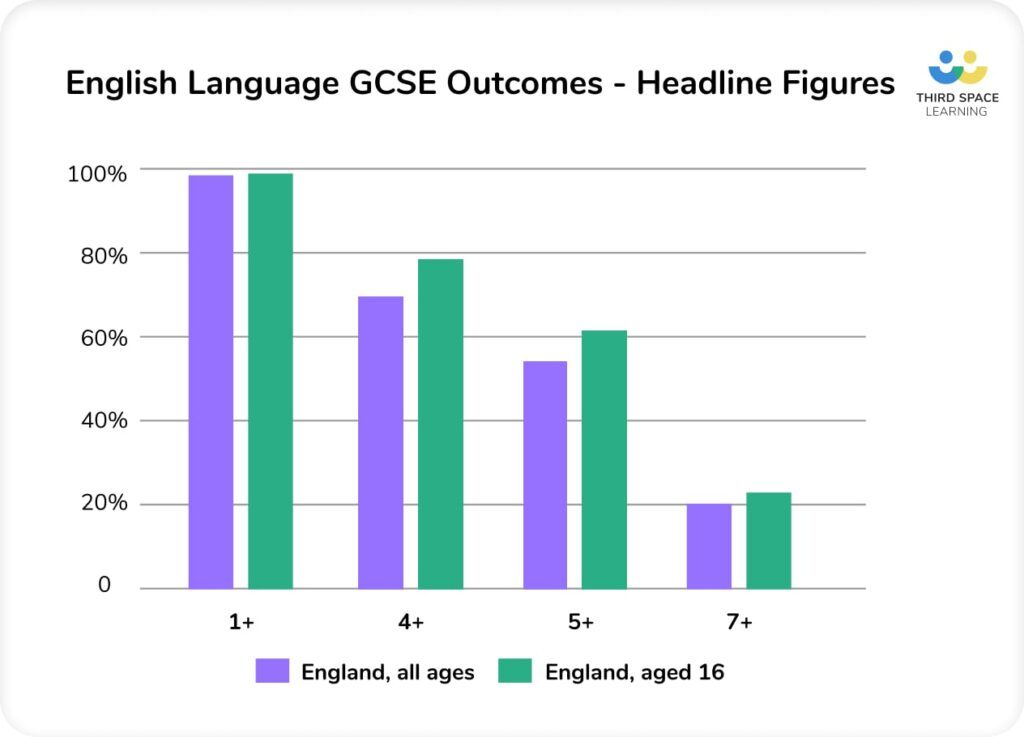

The percentage point differences between the proportions of grade 4s and 7s awarded in 2019 and 2022 are greater in English language than in maths and in English literature. In fact, this difference is almost double in GCSE English language.

Modern foreign languages
In modern foreign languages, entries for French and German GCSEs continued to fall, with Spanish also recording a small drop in entries. Adjustments were made to grade boundaries in French and German this year to better align grade standards with Spanish.
Science
In Double Award Science, the proportion of 4-4 and above grades was up 5 percentage points from 2019 to 60.5%. The proportion of grade 7-7 and above was up 2.8 percentage points to 10.3%.
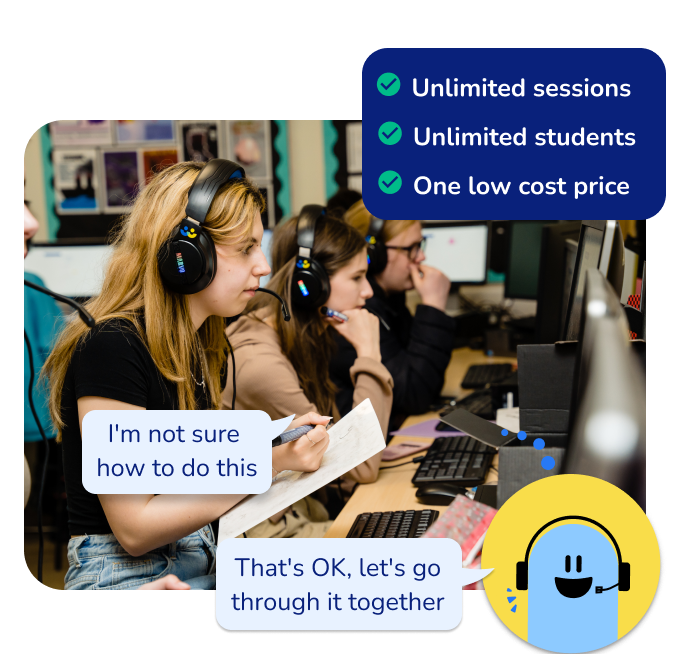
Unlimited GCSE maths tutoring with Skye, the voice-based AI maths tutor.
Built on the same principles, pedagogy and curriculum as our traditional tutoring but with more flexibility, reach and lower cost.
Help your GCSE students achieve their target grade with Skye’s one to one maths tutoring.
Watch Skye in actionGCSE results 2022 adjustments and grade boundaries
This year, although GCSE exams are on a gradual trajectory back to normal, some modifications were allowed to account for the disruption to this cohort’s learning over the past three years.
GCSE exams 2022 had a reduced syllabus. For most subjects, exam boards released advance information indicating what topics would feature on exams, and in the case of mathematics, formulae sheets were allowed. This aimed to focus students’ GCSE maths revision time and help teachers to plan content.
WE ASKED
To what extent did the content of the maths papers match your expectations?
YOU SAID
From the teachers we surveyed, opinions about the usefulness of the advance information were mixed. Interestingly, there was no correlation between the exam board chosen (Edexcel, AQA, OCR) and the perceived usefulness of the advance information.
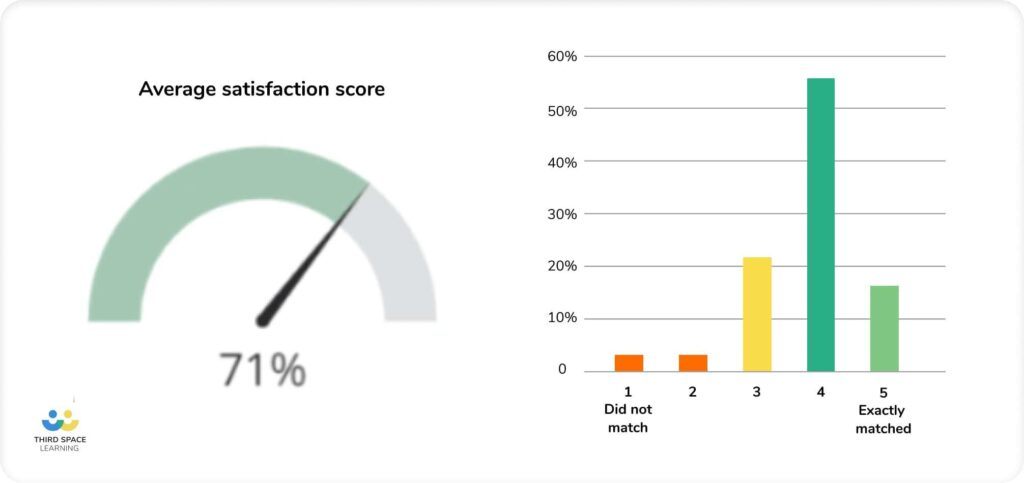
One teacher raised the issue that this information could have further widened the attainment gap, “[t]hose who revised diligently made use of the advanced information. Some who perhaps did not have the same levels of support were barely aware it existed until very close to the exam.” – Deputy Head of Maths, Oxfordshire
Whilst another teacher found the timing of the release of the advance information detrimental to its impact, “[t]he advanced information was so general that it made very little [difference]. This was exacerbated by it not being available until the end of February when most [teaching] had already been completed.” – Head of Maths, Kent
The way that GCSE grade boundaries have been set in 2022 has changed slightly, in order to account for the different ways that students have been assessed and grades awarded over the past three years.
It was announced that results would reflect a ‘midpoint’ between the results from summer 2019 (the last set of summer public exams) and summer 2021 (teacher assessed grades or TAGs).
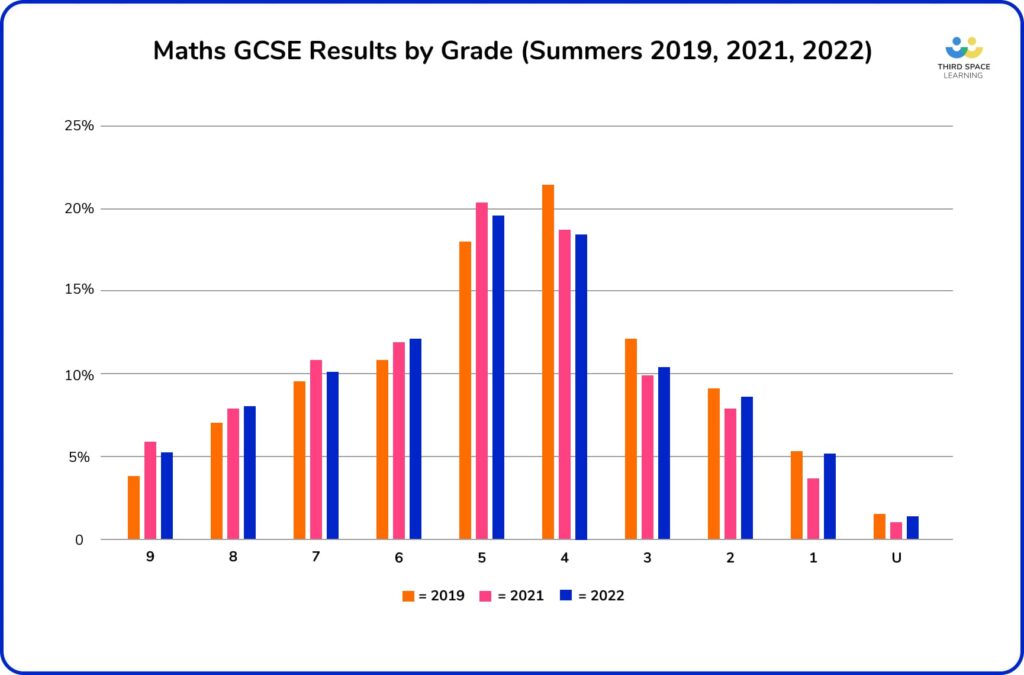
We can clearly see that, in summer 2021, a significantly higher proportion of higher grades (9-5) were awarded than in summer 2019. We can also see that a significantly lower proportion of lower grades (4-1 and U) were awarded in 2021 than in 2019.
When considering the 2022 results, we can see an attempt to ‘rebalance’ this distribution. We look at the setting of grade boundaries in more detail below.
GCSEs were not business as usual during the pandemic
Due to the Covid pandemic and disruption to learning, GCSE exams did not take place as usual in 2020 or 2021. Instead, adaptations were in place, and the Department for Education (DfE) determined various means that were used to produce grades for students.
WE ASKED
Thinking about the disruption of the last two years, what do you think has been the biggest impact on supporting your students through maths GCSEs this year?
YOU SAID
Teachers surveyed felt that due to the disruption over the past two years, the biggest impacts on teaching and support were the wide variety of learning gaps in the classroom and students lacking confidence.
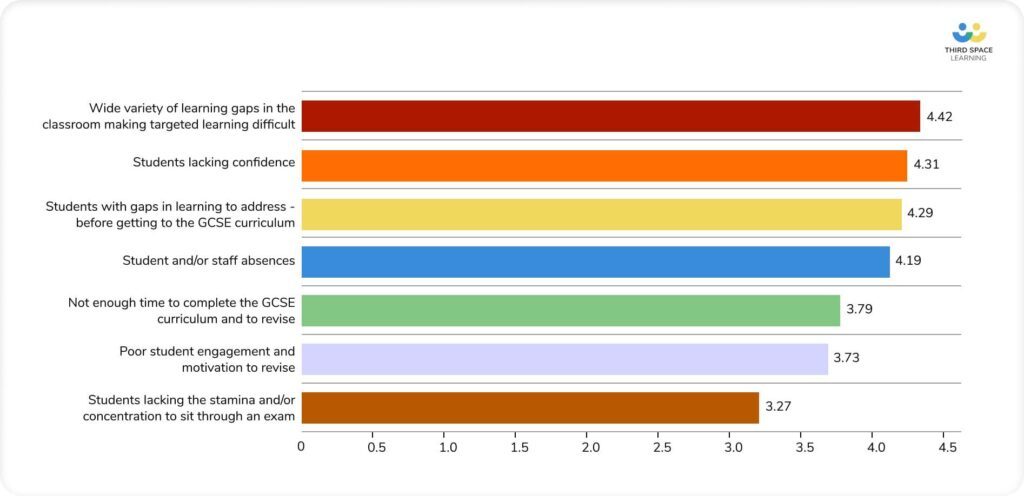
Whilst student engagement and motivation to revise were overall judged to have a lesser impact by the teachers surveyed, teachers did echo the sentiments expressed by another earlier in the survey about the relationship between the pandemic and the widening attainment gap, “[t]hose that needed [the support] have suffered, those that would have already done well […] were ok.” – Head of Maths, Yorkshire
Another teacher expressed an overarching comment about the impact of the disruption, saying, “[i]t has amplified the impacts of disadvantage.” – Assistant Head, London
However, another teacher noted about the exams that “[s]tudents seemed keen to get back to exams having seen the previous cohorts miss out.” – Deputy Head of Maths, Oxfordshire
Rewind to GCSE results 2020: grades were higher
In 2020, an algorithm developed by Ofqual was designed to assign GCSE grades. Centre assessments were to be put through the model, which used schools’ past performance and expected national outcomes to ‘standardise’ grades.
In response to controversy over how a similar model had down-graded A-Level results, this plan was scrapped three days before GCSE results were announced. Instead, results came from students’ centre assessment grade or calculated grade, whichever was higher.
In 2020, the proportion of GCSE candidates receiving the highest three grades rose from 21.9% in 2019 to 27.6% in 2020. Students achieving a 4 or above rose from 70% to 79% in England.
In maths, the proportion of students who gained a 7 and above rose from 20% to 24%, and those who gained a 4 and above rose from 71.5% to just above 77%.
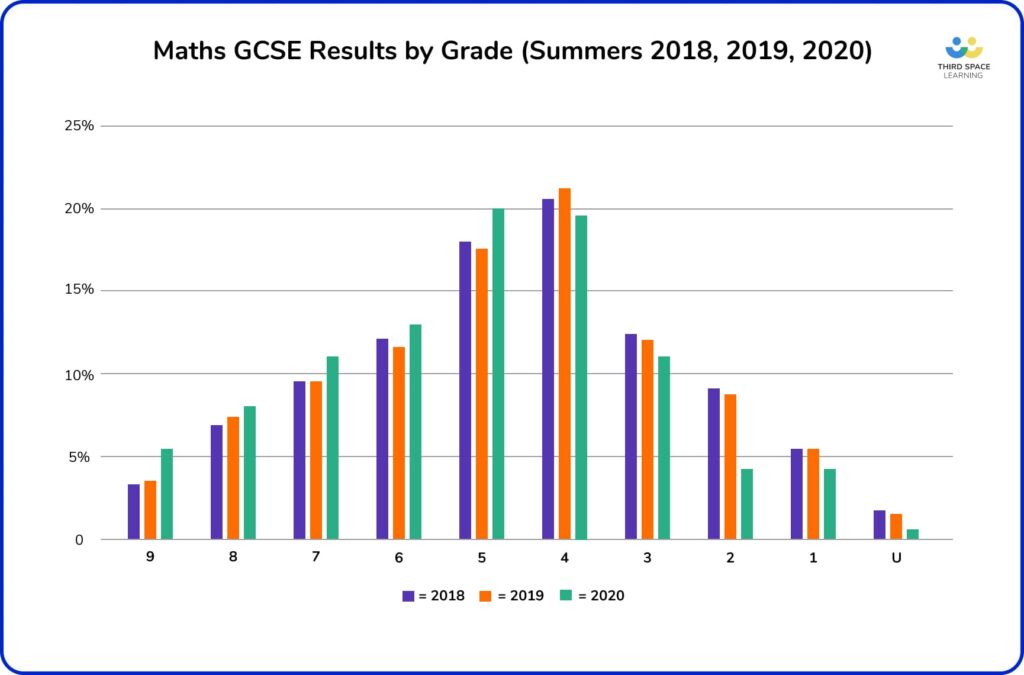
Rewind to GCSE results 2021: grades were even higher
In 2021, grades were awarded by teachers based on what grade they believed a student would have earned if they had sat the exam. Mock exams, in-class tests and other non-exam assessments that had already been completed were used to assess students’ performance.
Results in 2021 were even higher than in 2020, with the proportion of students achieving 7 and above rising to 28.9% in 2021, from 26.2% in 2020. The proportion of those who earned a 4 and above rose to 77.1% in 2021, up from 76.3% in 2020.
In maths, the proportion of students who gained a 7 and above rose again to 25.9%, and those who gained a 4 and above rose to nearly 78%.
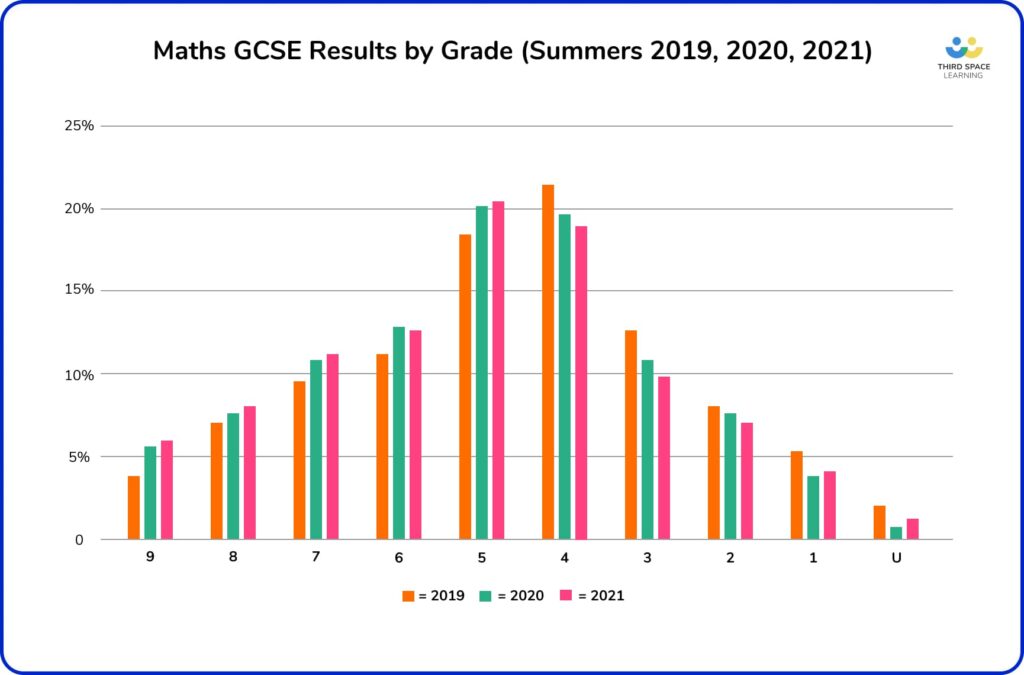
A happy medium: setting the boundaries in 2022
Every year, grade boundaries for GCSE examinations are set once all of the papers have been sat and marking has been completed. Statistical measures including the performance of the cohort at KS2 are used to suggest initial grade boundaries.
The senior examining team then considers scripts from candidates on the borderlines of these boundaries (a couple of marks on either side) and compares these scripts to the equivalent awarded grade from the previous year. So, they look to see whether a ‘grade 4’ student’s work from the current series looks and feels the same as the work of a student who was awarded a grade 4 in the previous series of examinations.
Grade boundaries differ from paper to paper and exam board to exam board. A more difficult paper has lower boundaries than an easier paper, ensuring that it is no easier or harder to get a particular grade with one board than another.
2022 was generous ‘midpoint’ between 2019 and 2021
This year, the exam boards used data from 2019 (exams) and 2021 (TAGs) as a starting point for grading. This means that the results should reflect a ‘midpoint’ between summer 2019 and summer 2021. However, Ofqual highlighted in July that the results would not be a precise midpoint due to variation in student performance between subjects. Senior examiners have still carried out the review process of candidates’ work to set the final grade boundaries.
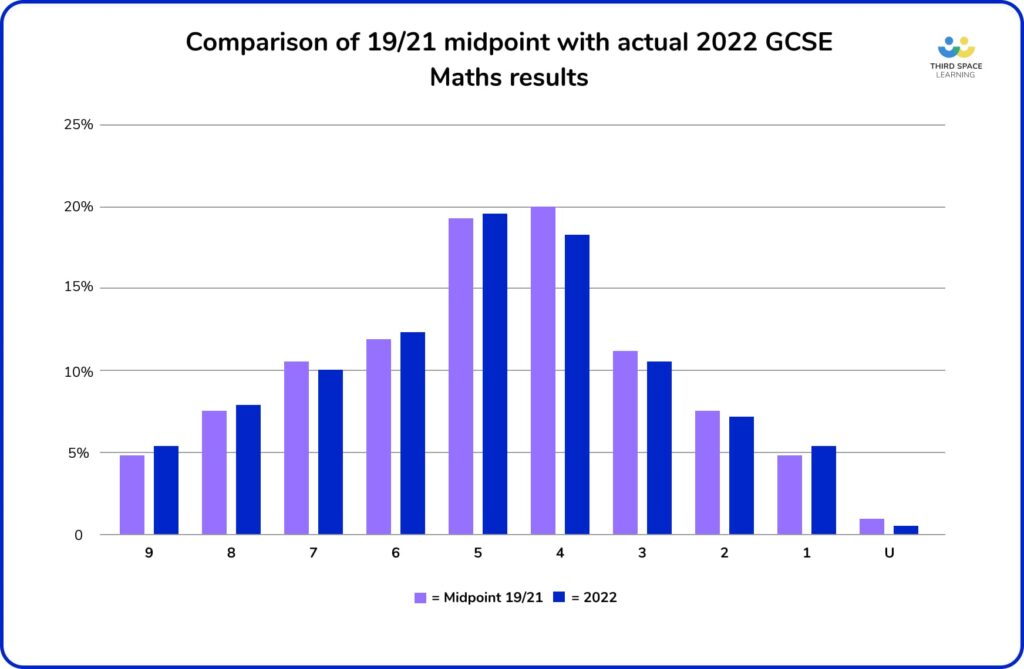
We can see in maths that exam boards generally have been more generous in awarding higher grades than the strict midpoint between 2019 and 2021. For example, using the midpoint, we’d expect 4.9% of awards to be grade 9, whereas we’ve actually had 5.3% grade 9s.
Interestingly, we see that two of the benchmark grades, 4 and 7, have a lower proportion of grades awarded than the strict midpoint value. This does not mean that examiners have been less generous in awarding these grades. Instead, this reflects the fact that more students on the 7-8 and 4-5 borderlines have been awarded the higher grade on the borderline this year.
Ofqual also stated that:
- It is more meaningful when analysing performance trends to compare this year’s data to 2019 than the last two years;
- Most schools and colleges will have received results lower than in 2021;
- Using data from 2019 and 2021 is important to support alignment between exam boards;
- Marking has happened as normal, in accordance with agreed mark schemes;
- There is no quota for the number of students that can get a particular grade.
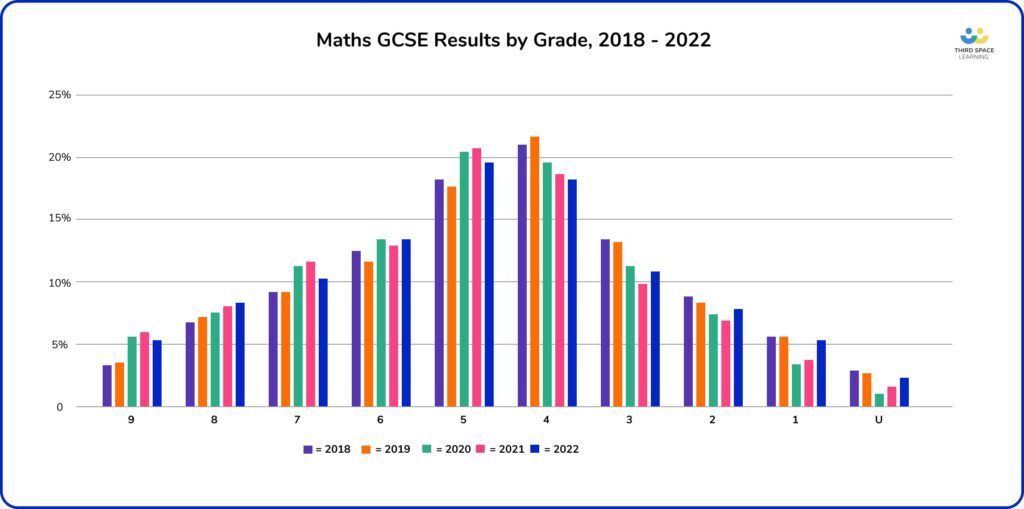
Edexcel GCSE maths results 2022
Over the exam season, I wrote a reflective piece after each exam paper, focusing mainly on Edexcel Foundation and Higher.
Read more:
- GCSE Maths Paper 1 2022
- GCSE Maths Paper 2 2022
- GCSE Maths Paper 3 2022
- Summary Of ALL GCSE Maths Papers 2022
My main highlights were as follows:
- The Foundation series was generally well-received;
- Higher candidates found GCSE maths Paper 1 very challenging, but GCSE maths Paper 2 and GCSE maths Paper 3 appeared more straightforward;
- The papers themselves felt like a standard set of Edexcel papers;
- Exam adaptations narrowed the content but did not change the way it was assessed.
Edexcel 2022 Higher grade boundaries 2017-2022

- Boundaries for grades 6-9 are very similar to 2018 and 2019;
- Students at the lower end of the Higher paper clearly struggled, as is reflected by the lower boundaries for grades 5-3. These are closest to 2017 boundaries when Edexcel acknowledged that parts of the exams were pitched too high.
Edexcel 2022 Higher grade boundaries by paper

- Despite the fact that students seemed to find Higher Paper 1 the most difficult of the three, the boundaries for this paper are only slightly lower for some grades;
- Clearly, students did better than they thought on Paper 1 (or possibly worse on the other two!)
Edexcel 2022 Foundation grade boundaries 2017-2022

- Boundaries are roughly in line with previous years, indicating that students didn’t significantly struggle with these exams;
- Boundaries were slightly lower than last year’s exam papers.
Edexcel 2022 Foundation grade boundaries by paper

- The boundaries for each Foundation paper are pretty close to each other, indicating that students performed equally well on all three papers and that the series was fairly balanced.
WE ASKED
How did the difficulty of the maths papers compare with your expectations?
YOU SAID
For the vast majority of teachers (71%) surveyed, the 2022 maths exams were in line with their expectations.

How to use the GCSE results 2022 data
Once the dust has settled with this year’s cohort and we’ve congratulated, commiserated or applied for re-marks as necessary, September is a good time to reflect on the lessons that can be learned and applied to the next series of exams.
As we’ve not had public exams for three years, newer members of the teaching profession may have not yet had the chance to go through the process of results analysis.
With that in mind, here are my top tips for what to do with your class’s results!
- Look for high- and low-performing students. Are there any surprises?
- Are there any stories behind underperformance? Were these students highlighted and targeted during the year?
- Have interventions offered been effective?
- Use question-level analysis to work out if there were any whole-class patterns;
- If any borderline scripts are reviewed and re-marked, it’s worth having a look through these yourself once scripts have been received – even if there is no mark change;
- This year, some boards are offering the facility to view scripts electronically (provided you have students’ permission) – this is definitely worth having a look at!
- Use the analysis tools within your board’s results kit. For example, compare your results to the board average to identify comparative strengths and weaknesses for your students.
When looking at whole-class patterns, there are a few things to look out for.
- Are there any topics that the entire class has performed poorly on?
- Are these topics ‘expected’? (e.g. we might expect that students aiming for a grade 4 would struggle with a problem that required a double application of Pythagoras and trigonometry);
- If there are any unexpected topics (e.g. students have all done really badly on procedural standard form questions), this may indicate an area for improvement in teaching and learning in the following year;
- What sorts of questions are students struggling with? Can this be supported or targeted in the next year?
When are GCSE 2022 resits?
For students who did not score as highly as they had hoped, there is the possibility to resit GCSE exams. Maths and English resits will take place in November of 2022:
- Paper 1 – Tuesday 1st November (AM)
- Paper 2 – Thursday 3rd November (AM)
- Paper 3 – Monday 7th November (AM)
Advance information has been released for these papers and is available via the exam boards’ websites.
For the November 2022 resits in maths, my key takeaways for the advance information are:
- A substantial portion of the content is the same as June 2022;
- Quite a few of these topics have switched between non-calculator and calculator. For example, standard form calculations appear again, but is on the calculator paper this time;
- For switched topics, this may change how they are assessed or what type of question is asked;
- There are a few topics that didn’t appear on June 2022 (e.g. trigonometry, reciprocals, compound interest, pie charts);
- Topics that did not appear in June 2022 may need to be cherry-picked for resit students – some may not have seen these topics for nearly a year.
Resits for other exams will be during the 2023 exam season.
Did you know that Third Space Learning created a series of FREE advance information practice paper packs?
Save time by downloading a selection of specially produced practice papers, mark schemes and exam question indexes, which cover Edexcel, OCR and AQA, as well as Higher and Foundation, plus calculator and non-calculator.
Check out our past papers for the June 2022 and November 2022 advance information now!
What to expect from GCSEs in 2023
There are no planned adaptations to GCSEs for the summer 2023 sitting.
- Adjustments to fieldwork and science practical arrangements will revert to the usual pre-pandemic arrangements;
- There is a return to full subject content coverage for English literature, history, ancient history and geography;
- The adaptations for other qualifications such as exam aids and advance information are no longer necessary for 2022-23.
This means that GCSEs are theoretically ‘business as usual’ for the 2022-23 cohort.
However, we must be mindful that these students have still experienced significant disruption to learning in KS3, which needs to be planned for in subject delivery. It is likely that the effects of the pandemic on education will be felt for many years to come.
Further reading:
Interactive graphs and statistics for this year’s GCSE results.
A handy explainer from Ofqual about the changes to grading in summer 2022.
Results for this year’s GCSE examinations.
The grade boundaries per paper for Edexcel exams in 2022.
A look at how grade boundaries are set for GCSEs from Third Space Learning.
- Christine Norledge: November 2022 (Edexcel maths advance information)
A more in-depth look at what’s in, what’s out, and topics to focus on with resit students for November 2022 (Edexcel Foundation only).
DO YOU HAVE STUDENTS WHO NEED MORE SUPPORT IN MATHS?
Skye – our AI maths tutor built by teachers – gives students personalised one-to-one lessons that address learning gaps and build confidence.
Since 2013 we’ve taught over 2 million hours of maths lessons to more than 170,000 students to help them become fluent, able mathematicians.
Explore our AI maths tutoring or find out how a GCSE maths tutor could support students in your school.
